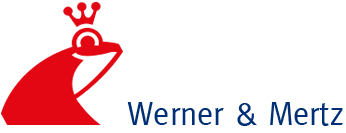Politics meets business
Rhineland-Palatinate Environment Minister Katrin Eder visits Werner & Mertz
Werner & Mertz owner Reinhard Schneider wastes no time in following up his words with action. Appointed just last week to the newly formed Rhineland-Palatinate Zukunftsrat for sustainable development, he, together with 20 other experts, is to advise the state government. Schneider has already met with Rhineland-Palatinate Minister for the Environment Katrin Eder, who visited the headquarters of the cleaning products company in the Rheinallee in Mainz.
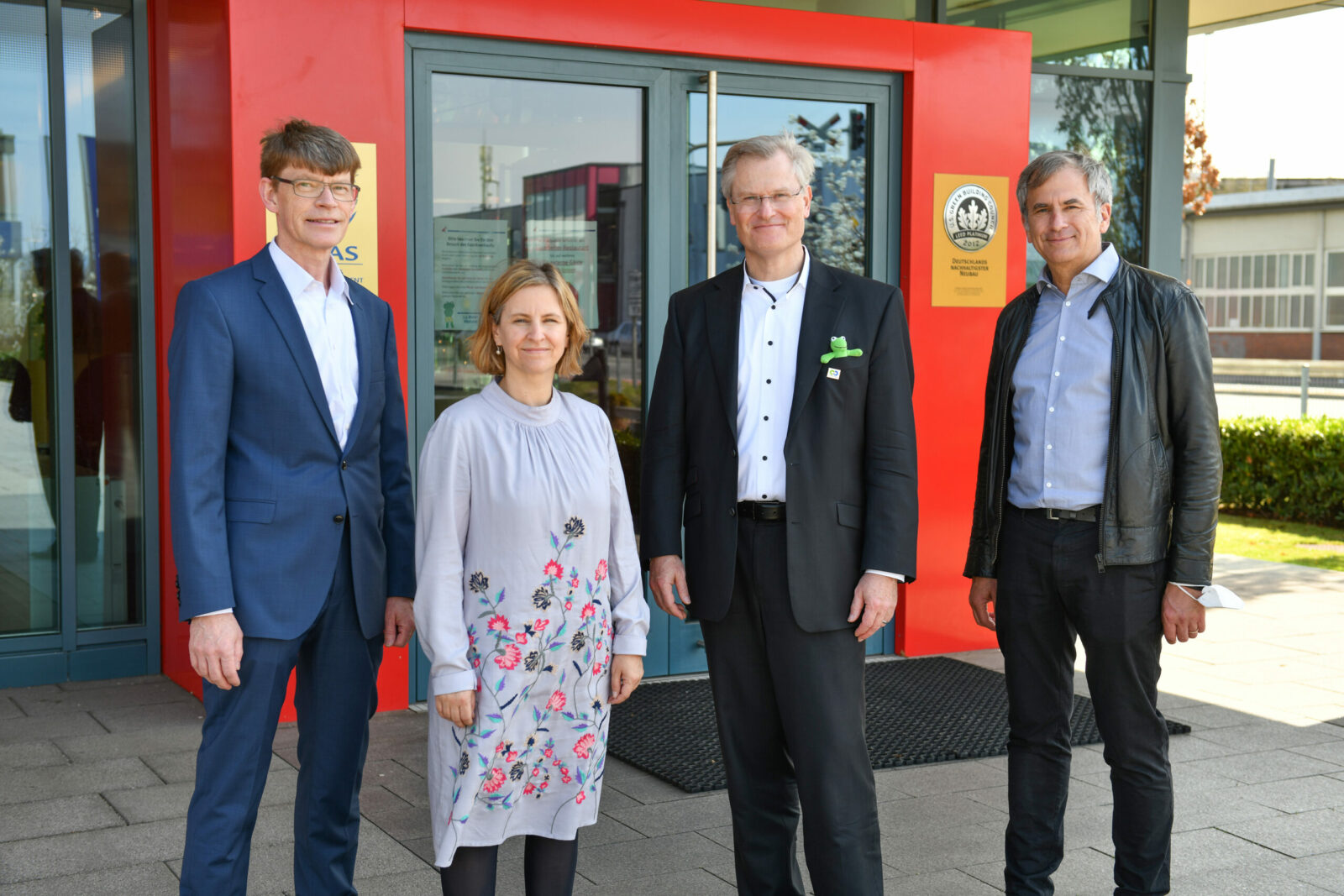
Tour of the world's largest recyclate bottle production
During the tour of the Production area, the minister learned about the Recyclate Initiative, which Schneider established in 2012. Within the scope of the Initiative, cooperation partners along the value chain are committed to high-quality recycling of used plastic from household waste collection systems like the Yellow Bag. The success is measurable. Since the start, more than 580 million bottles of 100% post-consumer recyclate have been produced and filled in Mainz. Dedicated in 2019, the Production Center at the headquarters is the largest recyclate bottle manufacturing plant in the world.
Sustainability had a top priority in the construction of the building. Among other things, the largest legally permitted amount of recycled concrete was used and up to two-thirds of the Production Center roof was covered with photovoltaic modules which supply power for the cooling units.
From bottle manufacturing by the Initiative partner ALPLA on the factory premises to bottle-filling with ecological cleaning products, Eder got an impression of the integrally sustainable way of working at Werner & Mertz.
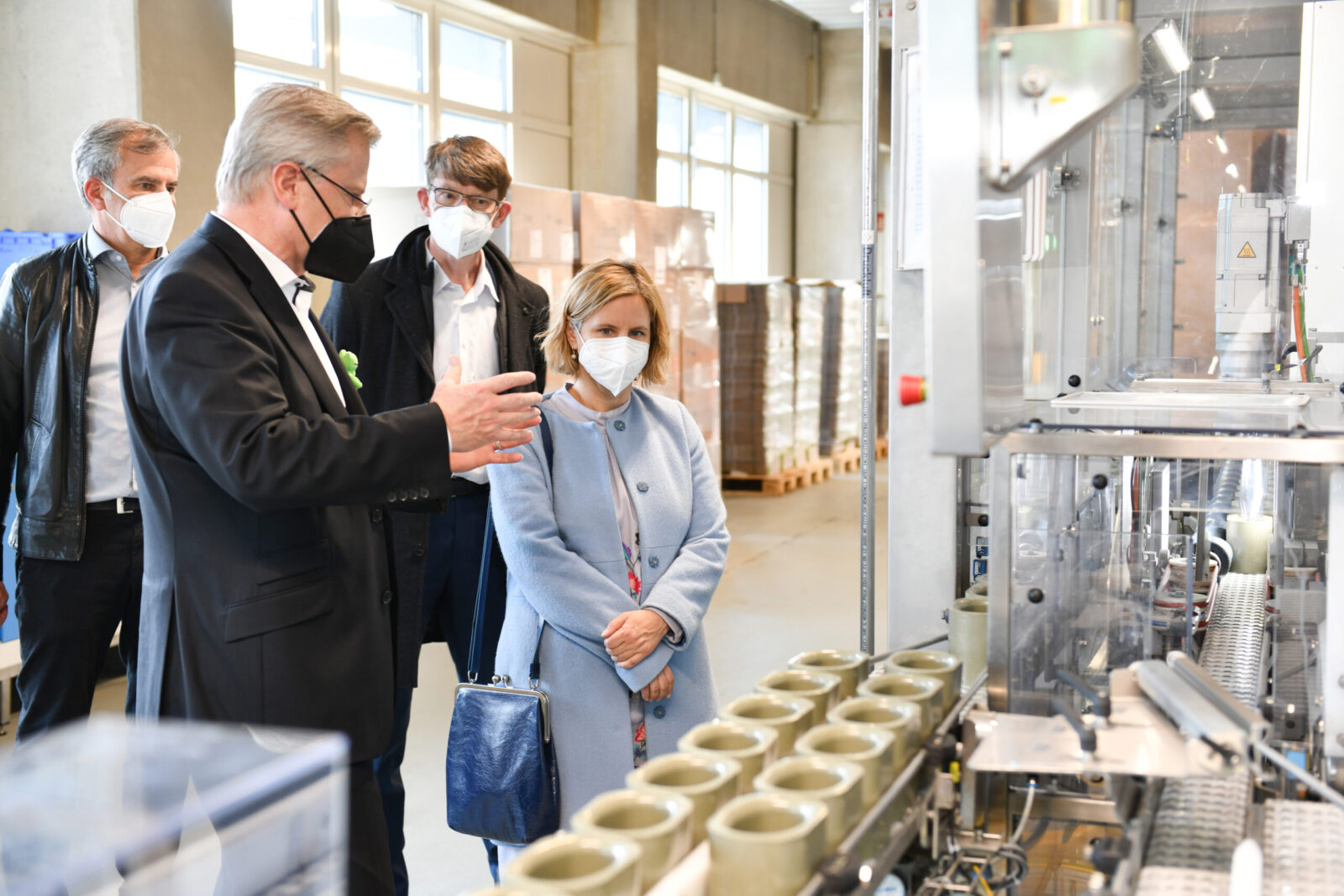
Responsible handling of water resource
The minister also took a look at the in-house Water Center. Instead of using valuable drinking water, the company draws water from its own well for production purposes and, thanks to the reverse osmosis system, can do without chemical additives such as lyes and acids in water treatment. The demineralized water is used as the raw material for products—e.g., for the Frosch and emsal brands—and for cleaning and rinsing cycles in Production.
Wastewater too is very carefully handled. A special system extracts the minerals and filters out the sludge, which is then used as a supplemental material in the manufacture of poroton blocks for the construction industry. The pre-treated wastewater is cleaned in the city’s treatment plant and then directed into the Rhine.
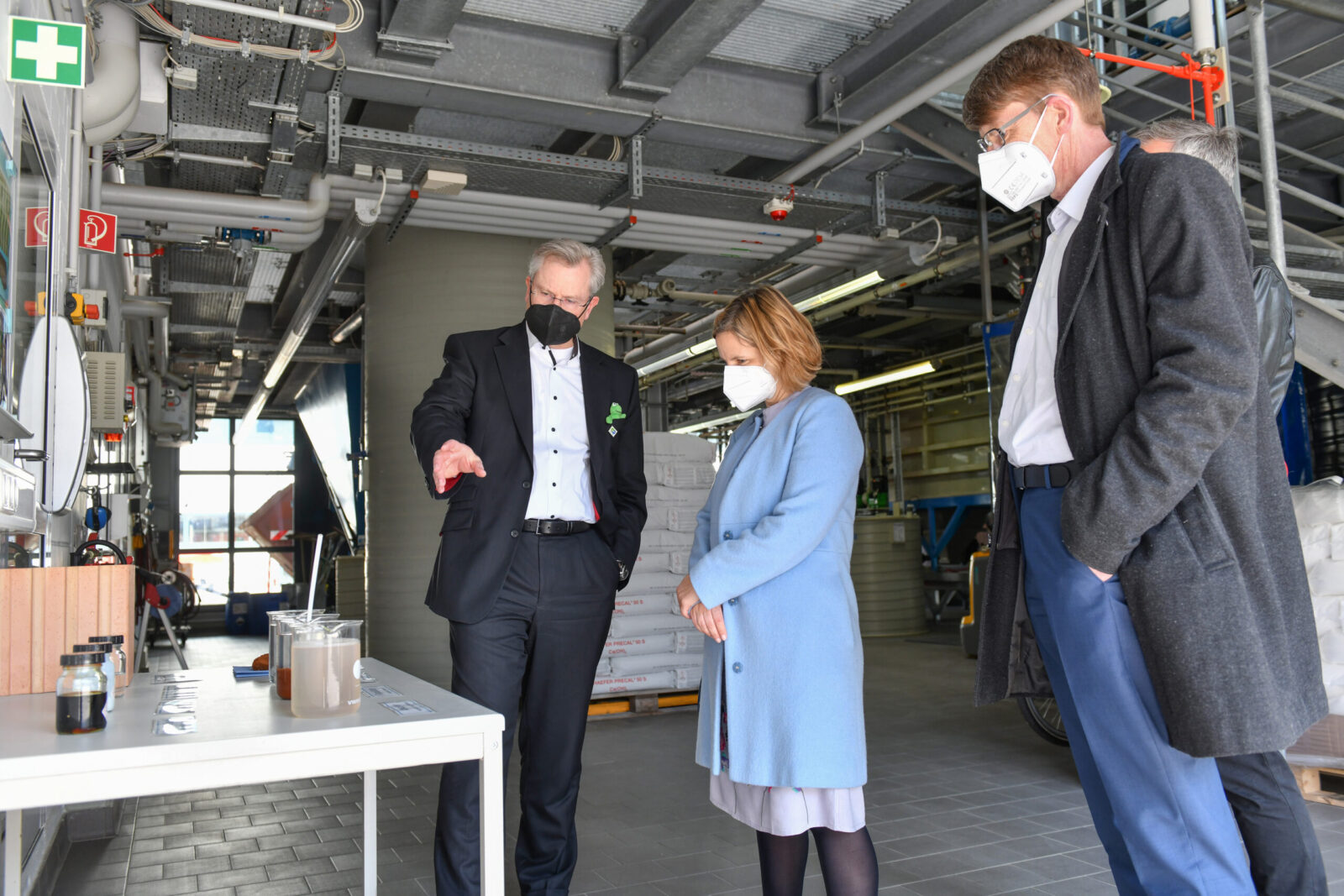
Climate protection requires a functioning circular economy
At the end of the tour Eder and Schneider spoke about possible ways to support a functioning circular economy for plastic. In the coming years, the circular economy will be one, if not the central issue in environmental policy. When kept in a closed-loop, plastic is a valuable raw material instead of environmentally damaging trash. High-quality recycling eliminates the need for new plastic production and thus reduces CO2 emissions. That means a functioning circular economy for plastic is active climate protection.
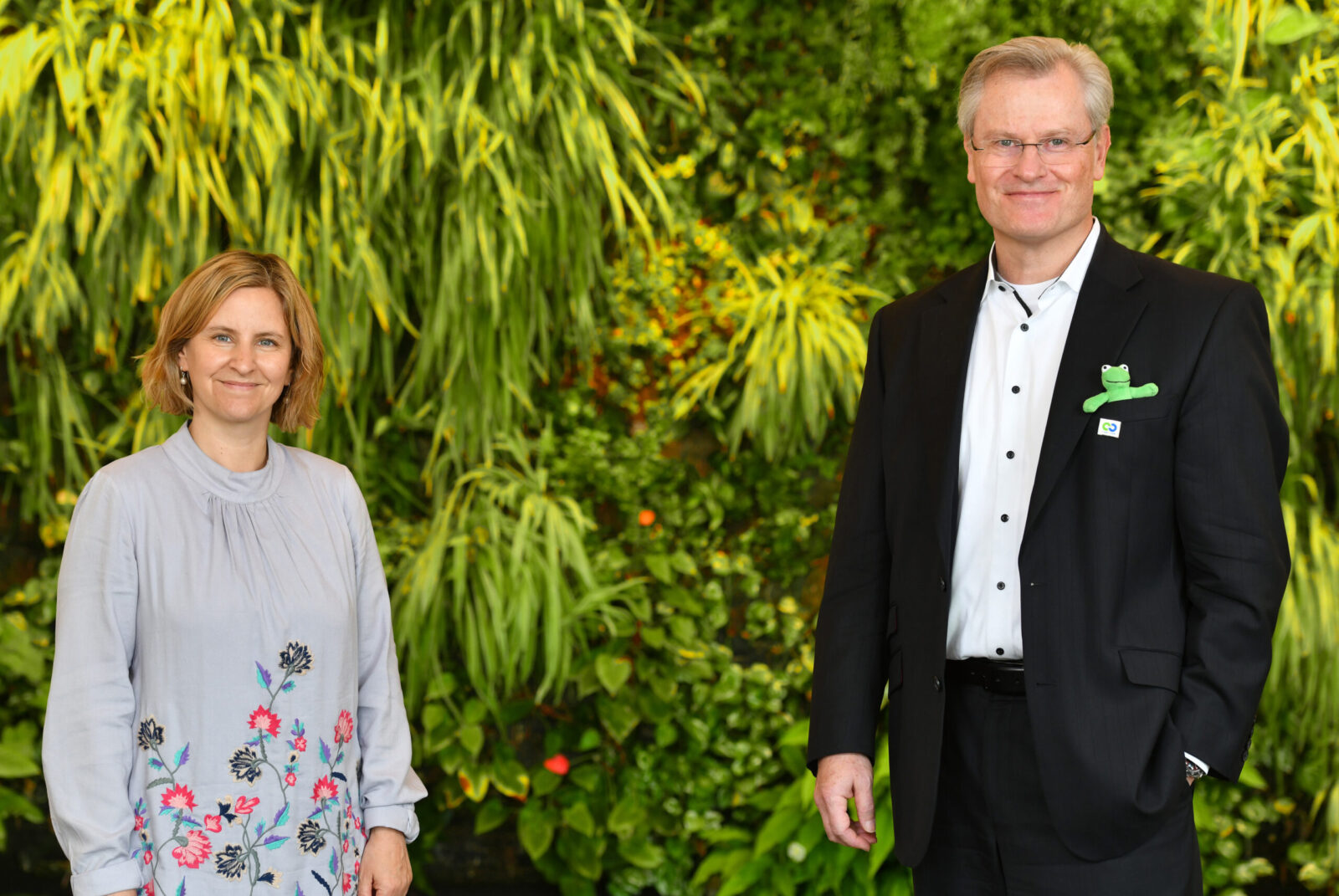
Political framework in support of high-quality recycling
The Mainz family-run company, however, is still one of the few that uses recyclate from household waste collection systems like the Yellow Bag in its packaging. It is not a question of technical feasibility, but rather of money. Virgin plastic remains significantly less expensive than recycled plastic. Hardly another company is prepared to pay the temporary additional costs for the benefit of the environment. Therefore, Schneider says it is essential to receive financial support for packaging produced completely or partially from post-consumer recyclate.
Schneider explained his suggestions for a political framework. A fund should be created to which all manufacturers/distributors contribute and from which only those who use post-consumer recyclate from Europe receive a refund. As a complement to the fund, a plastic tax for new goods should be imposed. That could help to resolve the price war.
“The circular economy for the majority is the best response to the major ecological and pressing resource policy challenges of our times,” said Schneider.
“A sustainable circular economy reduces resource consumption and supports climate protection. For more than ten years now, the Rhineland-Palatinate company Werner & Mertz has used material from old packaging to produce new packaging and thus is a role model for the entire industry. That’s how the circular economy should work,” said Minister for the Environment Katrin Eder. She added, “That’s why we support all European and German government initiatives and financial rewards for genuine recycling of material obtained from post-consumer waste collections like the Yellow Bag and the use of recyclate in production.”
